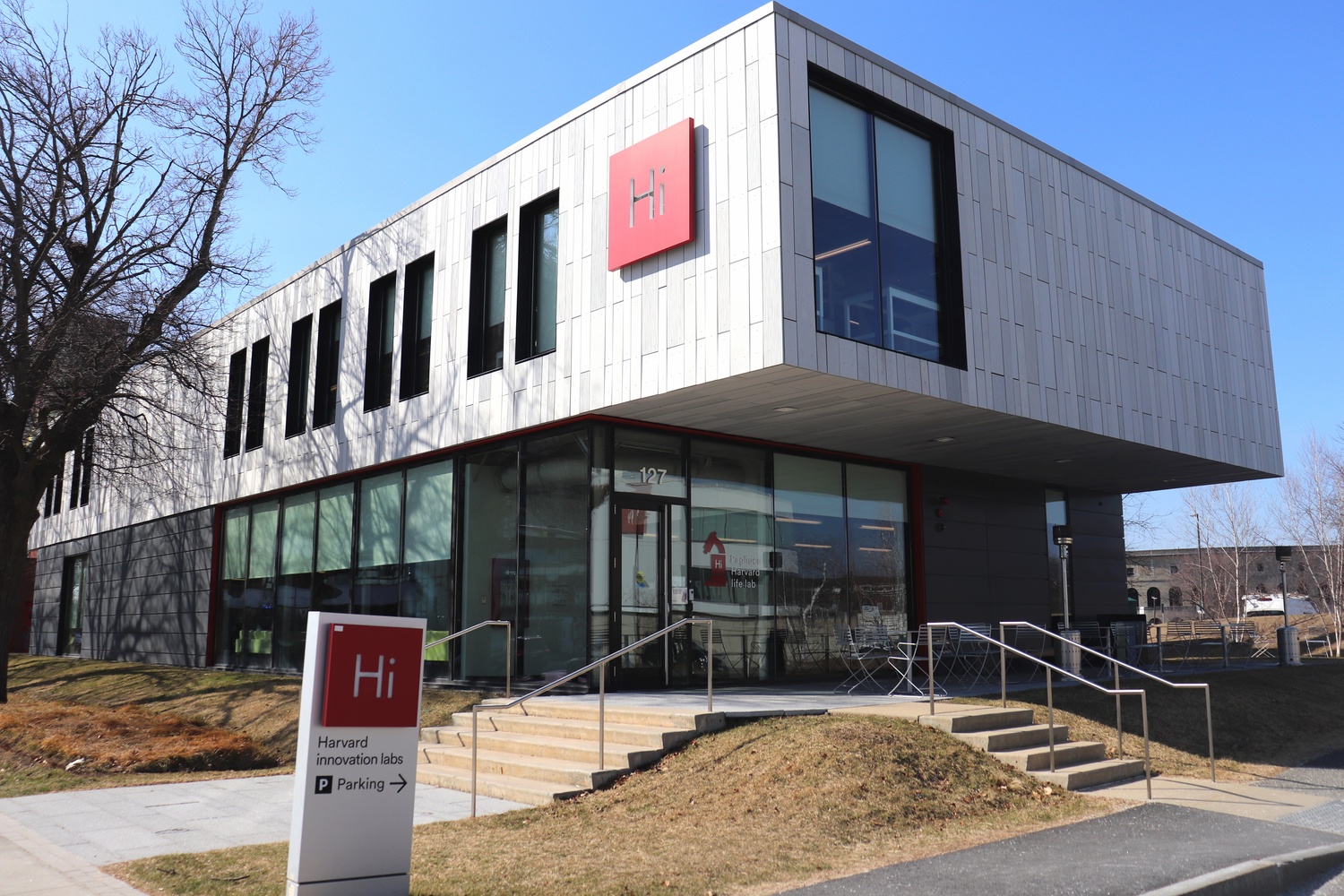
News
Summers Will Not Finish Semester of Teaching as Harvard Investigates Epstein Ties

News
Harvard College Students Report Favoring Divestment from Israel in HUA Survey

News
‘He Should Resign’: Harvard Undergrads Take Hard Line Against Summers Over Epstein Scandal

News
Harvard To Launch New Investigation Into Epstein’s Ties to Summers, Other University Affiliates

News
Harvard Students To Vote on Divestment From Israel in Inaugural HUA Election Survey
Perplexity CEO and Co-Founder Explore Harvard’s Start-Up Landscape in Campus Visit

Perplexity CEO Aravind Srinivas and co-founder Johnny Ho ’17 spent the past two days rubbing elbows with Harvard’s top business and engineering affiliates before participating in a Monday panel on the future of generative artificial intelligence.
Perplexity, an AI-powered search engine, has been expanding its presence on Harvard’s campus over the past year. In 2024, the company pioneered a “campus ambassador” program and offered all Harvard students a free year-long Perplexity Pro subscription.
Srinivas said in an interview that he hopes his Harvard visit — which he called “multi-dimensional” — will provide students with “more insight on why we’re building, what we’re building, and what we plan to build next.”
“The other thing we want to do is potentially find people to recruit and learn how they’re using Perplexity already, and what is really exciting them,” Srinivas said.
Srinivas’ two-day visit included talks at Harvard Business School and the Harvard Innovation Labs, a pitch competition sponsored by early stage venture capital fund Xfund, and private dinners with Harvard professors and students.
“I’m sure people in the Engineering department have very different perspectives of the product and how they use it compared to the Business School,” Srinivas said. “I’m trying to get as many perspectives as possible.”
Xfund partner Patrick S. Chung said the fund, which is spun out of SEAS, wanted to bring Srinivas to campus to expose students to the “foremost leaders of generative AI.” Srinivas joins Sam Altman, the CEO of OpenAI, another prominent name in the AI sphere who spoke at Harvard in October.
“He doesn’t call Perplexity an AI search engine. He calls it, ‘Where knowledge begins,’” Chung said of Srinivas. “All of these things were really interesting to us because we thought they would resonate well with an academic audience.”
At Monday’s panel, Srinivas said AI is developing into a “new paradigm called reasoning,” which emphasizes post-training — the process of fine tuning a model after it has been trained on a data set.
“There’s a lot of open-ended product questions that nobody knows the answer to, and unlocking each one, creating a new format, has a lot of potential,” Ho said.
Srinivas also responded to audience questions on the distinction between Perplexity and other AI models such as OpenAI’s ChatGPT.
“We are a focused product on search. Their chatbot does a lot of different things,” Srinivas said, citing examples of ChatGPT’s functions like generating images, writing, and code. “These are use cases where they really nailed the market, and we don’t really want to compete.”
But while Srinivas noted the possible “dystopian outcomes” of the technology, he still encouraged attendees to “start using AI” as a tool to assist more mundane activities so they can focus on individual creativity.
“You have to have taste at the end,” he said. “If you don’t have taste and opinions and creative ideas, it’s very hard to be useful in the new economy.”
As he discussed his own multi-billion-dollar company’s success, Srinivas shared advice for attendees looking to start their own companies.
“People should really try to get started and do something and gather their own understanding of the world. I have a certain view of the world. I might not be right,” Srinivas said.
“If you’re a founder, you will not learn how to be a founder without actually founding something. So that’s the direct answer,” Srinivas said, encouraging students to weigh the merits of pursuing a career in industry rather than academia.
Attendee and SEAS data science master’s student Alyssa M. Taliotis said she found the talk “technical” and encouraging for CS students.
“I think it was very interestingly technical, in comparison to previous talks, where people talk on the business side, or the business model,” Taliotis said. “You’re actually hearing about concepts that we apply daily and we know about, which is much more interesting to hear and encouraging for technical CEOs.”
SEAS master’s student in data science Alissia C. Di Maria said she found that "it’s interesting to know that big tech companies also don’t really know where AI is heading.”
“Everybody’s a bit fearful about it,” she added.
Srinivas said that his visit aimed to address the fear — and curiosity — that AI technology sparks on Harvard’s campus.
“Everybody’s just very curious about what’s going to happen next,” he said. “Honestly, the real answer is, nobody knows, but everyone’s interested in it.”
—Staff writer Sunshine Chen can be reached at sunshine.chen@thecrimson.com. Follow her on X @sunshine_cxn.
—Staff Writer Danielle J. Im can be reached at danielle.im@thecrimson.com.
Want to keep up with breaking news? Subscribe to our email newsletter.
